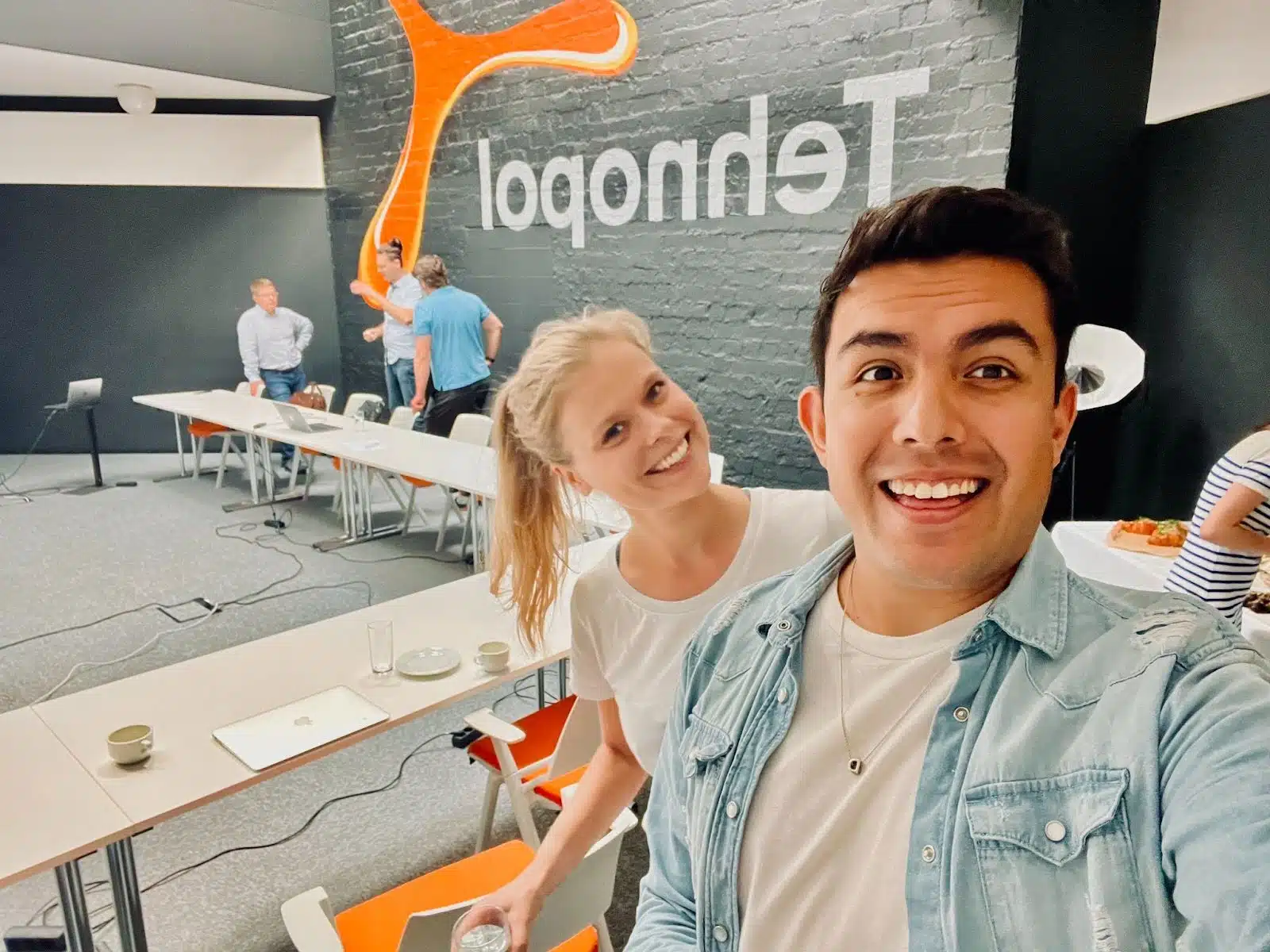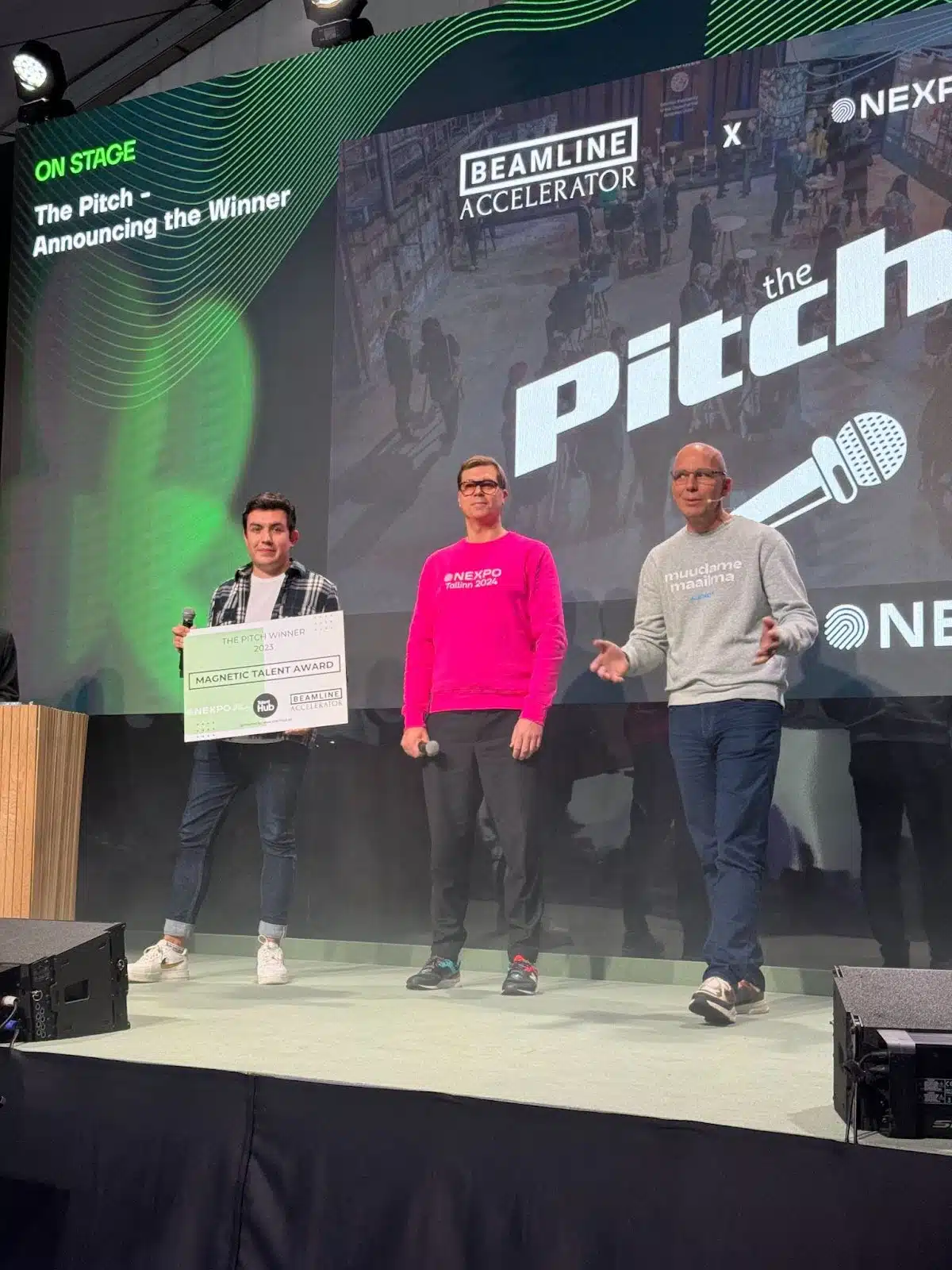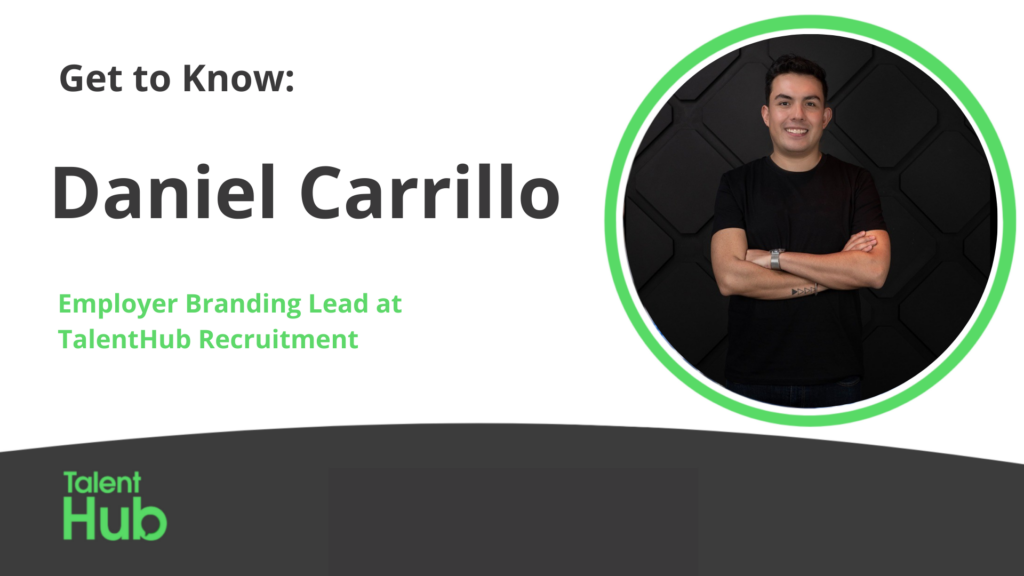As an Employer Branding Lead at TalentHub, Daniel is the driving force behind talent attraction strategies for our partners. Having been at TalentHub for nearly two years, Daniel has already transformed several Estonian start-ups into talent magnets.
Let’s learn more about Daniel’s story, what his role is at TalentHub, and what challenges he faces daily!
Q: You have been working in employer branding for around four years now. How did you find your way into it and make the transition from marketing to employer branding?
Daniel: “I think marketing is more about achieving revenue goals, whereas employer branding is more human. I’ve always enjoyed the latter side – creating experiences and connecting with people.”
“However, when I first moved to Europe from Mexico, marketing was the only option for me to get a visa. Working in the industry taught me how to define a target audience, create personas, and connect a service or product with the right people.”
“Eventually, the transition for me was natural. Employer branding allows me to focus on creating amazing experiences for employees while promoting the best parts of companies.”
Q: When were you first introduced to employer branding?
Daniel: “I first learned about employer branding when I moved to Poland in 2018 and was part of AIESEC. It was exactly the time when start-ups became more popular, and large companies weren’t attractive to younger generations anymore. My role was to help these corporations find out which policies they needed to change to create a more dynamic work environment.”
“My move to Europe facilitated my involvement in employer branding. It is more prevalent here than it is in the Americas, where people are often treated as disposable.”
Q: What is the biggest difference between doing employer branding for a large organization and a startup?
Daniel: “For large organizations, employer branding is about keeping up with industry standards, showcasing knowledge, and being a trendsetter. It’s tied closely with marketing efforts. For startups, it’s about showcasing the mission, engaging people with it, and standing out in a crowded market. It’s more about attracting talent to build the mission together.”

Q: How would you describe your role at TalentHub and the daily challenges you face?
Daniel: “Employer branding is traditionally known as something big corporations focus on when they’re struggling to attract talent. I want to break that misconception. I believe companies should implement employer branding from the beginning to attract the right people and define the culture.”
“That’s also one of the biggest challenges – most start-up founders think employer branding is a nice-to-have. We want to prove that it can also lead to short-term, measurable results as well. For example, it can improve the employee happiness index, NPS, and engagement rates.”
Q: What type of employer branding projects have you worked on?
Daniel: “At TalentHub, we’ve worked on a bunch of projects with partners of all sizes, from early-stage startups with 10 employees to mid-sized companies with 35+ employees. Our focus is always on finding their Employer Value Proposition and developing a consistent and appealing employer brand. This helps them attract talent, improve their recruitment and people processes, and even makes them more appealing to investors, often getting 5 extra minutes after a pitch.”
“We’ve also done over 30 free assessments for different startups, giving them our Employer Branding Score and a detailed look at where they stand today and where they can improve.”
“Besides all that, I’ve worked on Employer Branding for global companies like Merck, Spryker, and Starship, doing this as an in-house expert.”
“I’ve also been a part of two podcast episodes at TalentHub, one about employer branding and also an interview with Peep Laja.”
Q: What are some of the things you look out for in potential clients at TalentHub?
Daniel: “We look for engagement and buy-in from decision-makers. It’s important for us the management sees value in employer branding. It means they’re more likely to commit to making the project successful. Otherwise, it would just be nice research for the company, but they’ll never actually implement the findings in their hiring strategy.”
“There are some red flags as well. For example, when the company has very strong hierarchies and a top-down approach.”

Q: What aspects of employer branding do you enjoy the most and least?
Daniel: “I enjoy defining the value proposition, speaking with people, doing interviews, and creating a strategy that embodies their opinions. I also like being challenged to find the balance between shaping and organically building the company culture.”
“Some things that I enjoy less are recruitment marketing activities. Things like creating ads and pushing content on social media. I think employer branding should be organic and not come across as salesy.”
Q: What is one employer branding practice you once believed in but now think is no longer relevant?
Daniel: “It was a common practice to give employees preset text and templates to promote the company on social media. Now, I see it as inauthentic. Instead, it’s much better to focus on being transparent about both the good and bad aspects of a company. Staged content will always be less engaging than organic, real-life representations of the workplace.”
Q: Would you rather do employer branding for a company with a negative reputation but endless resources, or a company with little to no reputation but also no resources?
Daniel: “It depends on why the company has a negative reputation. If it’s due to bad strategy or implementation, I would take on the challenge. If the reputation is due to unethical practices e.g. doing illegal or shady things – I wouldn’t feel good about attracting people to work there.
I like the challenge of building something from scratch and proving that employer branding doesn’t have to be expensive. You can create very clear strategies with the right approach and mindset.”
Q: Do you have a dream company you’d like to do employer branding for?
Daniel: “I don’t have a specific company in mind. I would like to create a strategy for a company that’s doing something great for the world, like those focused on sustainability.”
Q: What do you like to do to unwind or what are your hobbies?
Daniel: “I enjoy life experiences like traveling and exploring new places. I want to experience significant events like the Olympics or the World Cup. Activities like flying in a hot air balloon or skydiving are also on my bucket list. I love the idea of creating memorable experiences.”
Q: If you were not working in employer branding, what would you be doing?
Daniel: “I would love to work in a place that discovers something great for future generations. For example, NASA or an organization working on solutions for global warming.”
Want to attract better talent for your company? Get in touch by letting us know your employer branding needs!


